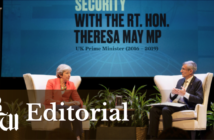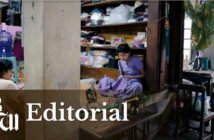On Sept. 29, the Council for Equity and Community sent out a campus-wide email informing the Lehigh community that Phi Kappa Theta fraternity violated the university’s Code of Conduct.
As the email said, on two separate occasions, the fraternity “hosted off-campus parties in which…brothers sang a song to other members, encouraging them to consume alcohol. On one occasion, this incident was video taped by a student attendee at the party. The lyrics to the song included the following chant: ‘He’s gay, he’s gay, he’s gay as f—.’”
The email sparked passionate student reactions on public forums. One particular student crafted an anonymous email that circulated around campus last week, accusing Lehigh of “demonizing” Phi Kap in an effort to “validate the university’s witch-hunt.” The student, self-identifying as a “Conscientious Observer,” said, “To the public, as I’m sure you have worked out, Lehigh’s administration hates Greek life.”
This anonymous student argued that the actions of a single person or of a small group should not reflect on an entire organization. He or she cited the situation surrounding the Umoja House vandalism last year, criticizing the university for holding the whole of Sigma Chi accountable for the actions of a single member of the fraternity. In fact, the student describes “extrapolating the actions of a single agent to apply to a group of people as a whole” as the “very definition of prejudice.”
But when a group chooses its members through a selective recruitment process, why shouldn’t the whole group be held accountable? When you are hand-picked to be in an organization, there is an inherent expectation that you will embody and uphold its standards. You are bonded to that organization, for better or for worse.
That is why one fraternity member’s actions reflect on the whole chapter. And it is why Phi Kap’s actions reflect on the Greek community as a whole.
Placing this type of responsibility on the whole organization helps to raise its standards. In effect, it diminishes the bystander effect by creating incentive both for individuals to act in a way that reflects well on the organization and for individuals to call out their peers who are not acting accordingly.
It is not just Greek organizations that face this type of scrutiny. Other student organizations on campus find themselves held accountable for individual’s actions. As a selective organization that chooses its members through an application process, The Brown and White finds itself in this position. When members of the Lehigh community are dissatisfied with an article we publish, the organization as a whole is held responsible, not just the individual reporter.
Lehigh’s “Conscientious Observer” views this system of accountability as a vendetta against Greek life. The student claims the administration’s “ultimate agenda” is to purge the university of Greek organizations. He or she believes the university will use Phi Kap’s violations as another nail in the coffin of the Greek system.
However, this overall debate about the administration’s attitude toward Greek life is simply distracting from the topic’s real point: A campus organization did something that offended a student so much that he or she felt it necessary to videotape the group’s actions and show the administration. Most students perceive the investigation of Phi Kap as the university cracking down and pitting students against each other, but it was a student who initially chose to film the chant and, in doing so, address this issue.
A post on Lehigh Greek Community’s blog read, “The person who sent this video indicated that they felt harassed and asked that the University investigate.” Not only did this student find the words offensive, a natural reaction for anyone who wants Lehigh to be a welcoming community for LGBT students, but the student also felt the words to be personally harmful. And how could they not be interpreted as such? The chant uses the word “gay” as a derogatory term. Gay refers to part of someone’s identity — it is a sexual orientation. Gay is by no means an inherently offensive word, but it is offensive when people use it as an insult because that implies that being gay is something insulting.
Since gay can be used appropriately, some students seem to be struggling to understand why the chant was considered offensive. On the class of 2017’s Facebook page, students compared that particular use of gay to the “N” word and concluded that it was not as offensive. It may seem logical to view words in relation to each other to gauge a better understanding of their effect, especially if the prejudiced label does not apply to you, but comparing levels of offensiveness is not the issue. All we need to understand is that discriminatory words like these cause pain to the people who belong to those targeted groups. Pain is pain. It is immeasurable.
No tradition is worthy of sacrificing the welfare of our fellow classmates. Whether Phi Kap sang their chant out of respect for an outdated tradition, ignorance or sheer homophobia, the result was the same: Their words were offensive to members of our community. That should be the bottom line. Hopefully, they understand that the goal is not to punish but instead to educate them about how their actions affected others.
As Lehigh students, we have an obligation to respect our peers, and the responsibility does not disappear simply by stepping off campus. So, always listen to your own words, and consider their potential impact. Think of everyone that our community includes, and learn how to respect them all.






Comment policy
Comments posted to The Brown and White website are reviewed by a moderator before being approved. Incendiary speech or harassing language, including comments targeted at individuals, may be deemed unacceptable and not published. Spam and other soliciting will also be declined.
The Brown and White also reserves the right to not publish entirely anonymous comments.